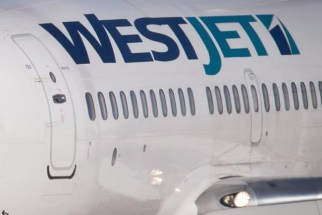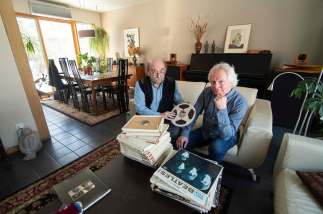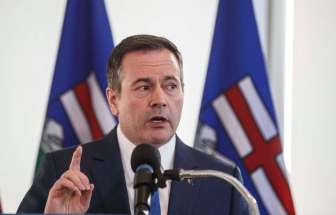He adores them, yeah, yeah, yeah… It's been a hard day's... half-century for a Winnipeg sound engineer involved in a Beatles radio documentary 50 years ago; his long-sought copy airs Saturday
Read this article for free:
or
Already have an account? Log in here »
To continue reading, please subscribe:
Monthly Digital Subscription
$0 for the first 4 weeks*
- Enjoy unlimited reading on winnipegfreepress.com
- Read the E-Edition, our digital replica newspaper
- Access News Break, our award-winning app
- Play interactive puzzles
*No charge for 4 weeks then price increases to the regular rate of $19.00 plus GST every four weeks. Offer available to new and qualified returning subscribers only. Cancel any time.
Monthly Digital Subscription
$4.75/week*
- Enjoy unlimited reading on winnipegfreepress.com
- Read the E-Edition, our digital replica newspaper
- Access News Break, our award-winning app
- Play interactive puzzles
*Billed as $19 plus GST every four weeks. Cancel any time.
To continue reading, please subscribe:
Add Free Press access to your Brandon Sun subscription for only an additional
$1 for the first 4 weeks*
*Your next subscription payment will increase by $1.00 and you will be charged $16.99 plus GST for four weeks. After four weeks, your payment will increase to $23.99 plus GST every four weeks.
Read unlimited articles for free today:
or
Already have an account? Log in here »
Hey there, time traveller!
This article was published 27/02/2020 (2119 days ago), so information in it may no longer be current.
Beginning this Saturday at 6 p.m. and continuing for the next five Saturdays, 93.7 CJNU Nostalgia Radio will air six consecutive, two-hour chapters of The Story of the Beatles, an exhaustive, 12-hour documentary chronicling the history of the Fab Four.
Then, on April 10, 50 years to the day Paul McCartney announced in a press release he wouldn’t be working with John Lennon, George Harrison and Ringo Starr going forward, pinning the reason for the split heard ’round the world on “personal differences, business differences, musical differences, but most of all because I have a better time with my family,” CJNU will air the broadcast in its entirety, from 10 a.m. to 10 p.m.
OK, maybe 12 hours sounds like a sizable stretch to spend parked next to a radio. Except that’s nothing compared to the long and winding road self-described Beatles nut Michael Gillespie embarked on in an effort to breathe new life into the doc, put together by Toronto’s 1050 CHUM with the help of several ex-Winnipeggers in the days immediately following the Liverpool band’s breakup.
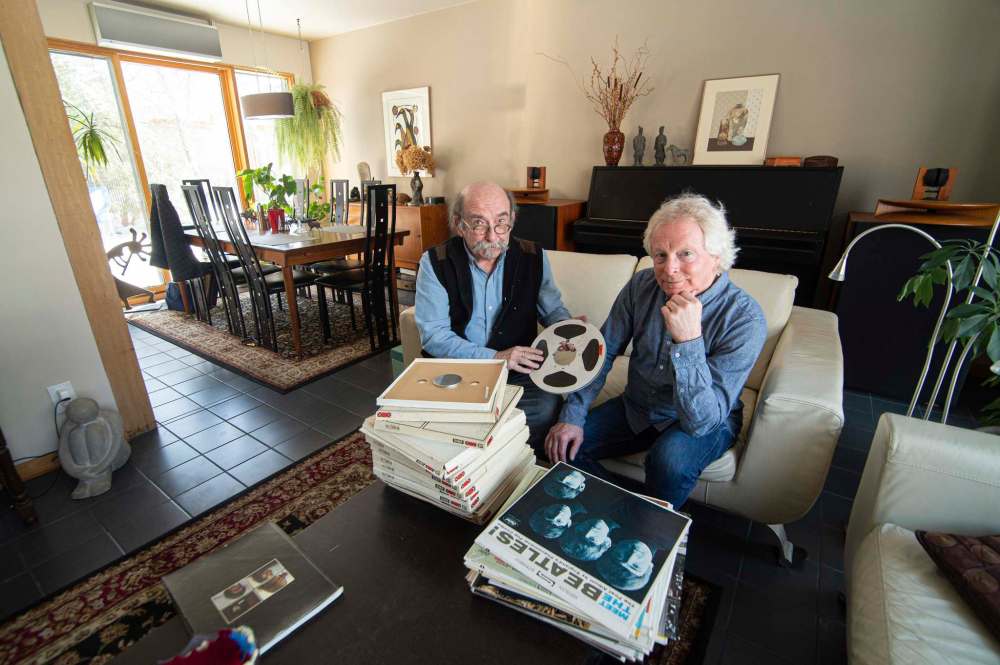
“Practically everybody on my contact list, almost all of whom also grew up listening to the Beatles, has said how much they’re looking forward to tuning in,” says Gillespie, a professional sound engineer and inventor whose studio gear has been utilized by a who’s who of recording acts, including John Mellencamp, Fleetwood Mac and Celine Dion.
“Because of the way people’s lives are set, Saturday nights might not be everybody’s best option. But since April 10 falls on Good Friday, a lot have let me know they’re not even going to change out of their pajamas.
“Their plan is to get up, throw on a pot of coffee and plunk themselves down on the couch for the rest of the day and night.”
•••
Gillespie was 20 years old when The Story of the Beatles aired on 200 AM radio stations across North America, including two in Winnipeg, CKY and CFRW. Because he knew many of the people involved — he was 15 years old when he got a part-time job at CKY working alongside J. Robert Wood, the documentary’s producer and a Teulon native, and narrator Chuck Riley — the Vincent Massey Collegiate alumnus had a vested interest in the project; so much so that in 1983 he began thinking how great it would be to latch onto a version for himself.
One problem: when he reached out to Wood that same year, asking whether any copies were available, he was told the chances were slim to none.
“Here’s the thing,” Gillespie explains, seated in a St. Mary’s Road coffee shop. “In 1970, (reel-to-reel) tape was incredibly expensive, close to $75 for a 10 1/2-inch roll. This was at a time when disc jockeys were making in the neighbourhood of $275 a month.
“So when you had in your possession a documentary that arrived on 12 rolls — 12 x 75 is $900 — it wasn’t like you were going to hang onto those tapes after the documentary aired. I mean, the Beatles were only going to break up once, right? Instead, you demagnetized (the tapes) and used them again and again and again.”
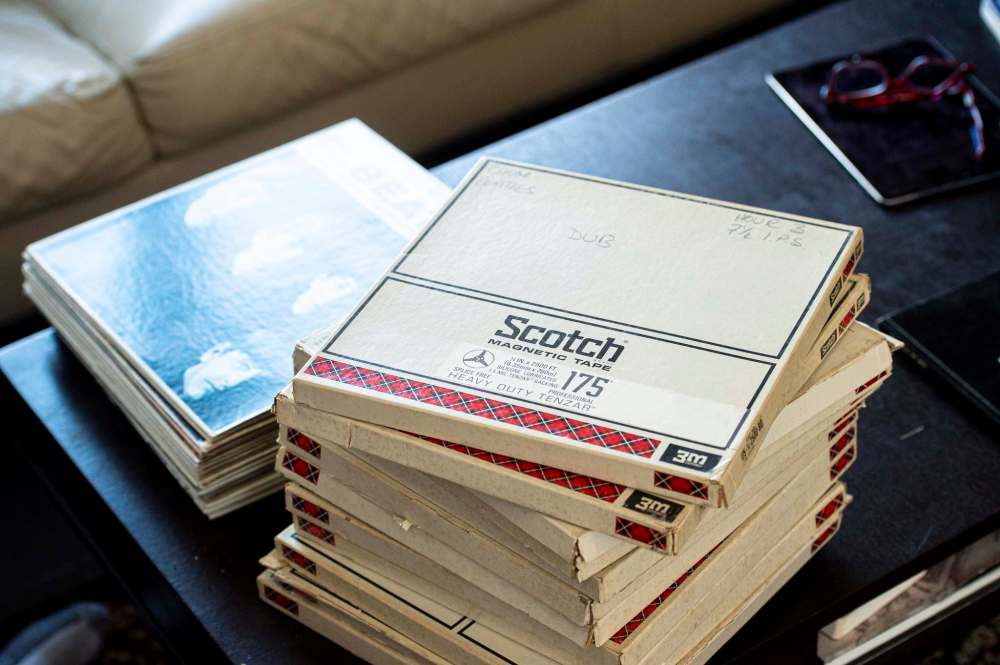
Undeterred, Gillespie continued hunting for the doc for the next decade, while he criss-crossed the continent helping build new radio stations. In the early ’90s, just as the internet was becoming a thing, he joined an online forum populated by more than 2,000 radio types. One of his first posts asked whether any copies of The Story of the Beatles existed.
Again, crickets.
That went on for years until one morning in 2011, when he picked up the phone and a voice at the other end of the line inquired, “Is this Gillespie, the guy looking for some lost Beatles tapes?”
It turned out someone who worked at a radio station in Milwaukee that had ceased operations was clearing out a room in the basement when he came across a sealed cardboard box marked “Beatles.” He’d heard about Gillespie through the grapevine and wondered if this was what the Fort Garry resident was after.
“I asked him how many tapes were inside the box and he said a bunch,” Gillespie says. “’No,’ I said, I wanted an exact number. When he got back on the phone and said 12, I said, ‘Don’t move; as soon as I get off the phone I’m calling FedEx.’ Twenty-four hours later, I had them in my possession.”
So Gillespie listened to the tapes, everything sounded great and that was the end of his quest, right? Wrong.
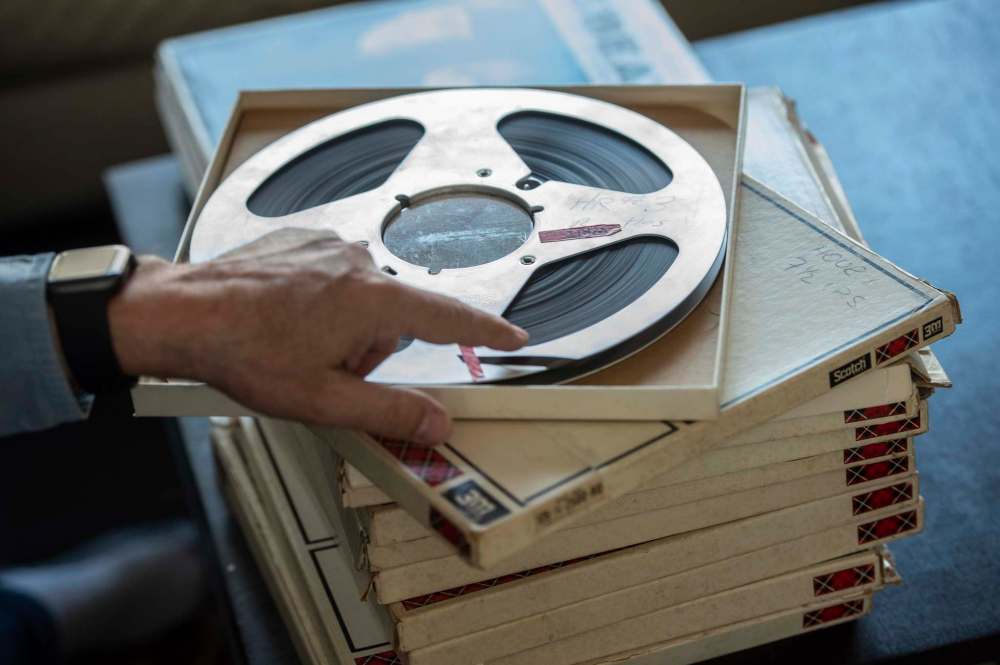
First of all, because the reels had been stored away for more than 40 years, the tape on each spool was stuck together, which required him to bake the lot in a food dehydrator he purchased for that express purpose, after reading online that was a possible solution.
That problem solved, next he to had to manually clean each tape, start to finish, 48 times before he was able to transfer the mix to a usable, digital file.
There was a final glitch; during Chapter 5 of the documentary, in the middle of an interview with Elvis Presley, there was 45 seconds of silence. Given the King of Rock and Roll died in 1977, reaching out to him was obviously out of the question. So he got back in touch with Wood to see if he had any bright ideas.
Wood put him in touch with Johnny Beerling, a BBC executive who, after finding out in 1970 that a Canadian radio station was putting together a Beatles history, reportedly exclaimed, “If anybody is going to make a (bad word) documentary about the Beatles, it’s going to be the (same bad word) BBC.”
To make a long story short, in 1970 Wood loaned recorded interviews tied to the CHUM documentary to Beerling, who used them in a subsequent broadcast.
Yes, he told Gillespie, he knew a person who should be able to provide him with the missing 45 seconds of dialogue.
A while back, Gillespie was standing in line at a local bookstore, waiting to chat with his pal and longtime broadcaster Gary Moir, author of a just-released tome, On the Air: The Golden Age of Manitoba Radio. Next to him in the queue was another radio veteran, Bill Stewart, who had begun volunteering his time at CJNU. After Gillespie mentioned the Beatles documentary, Stewart said the station would definitely be interested in airing it if Gillespie ever wanted to loan it out.
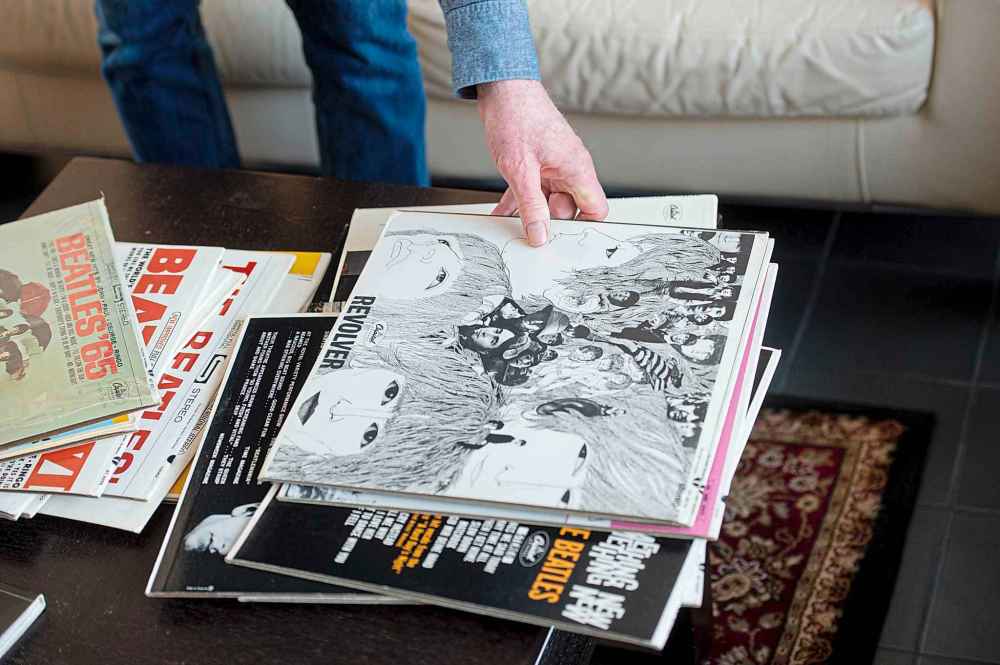
Two months ago, CJNU station manager Adam Glynn approached Juno Award-winning producer Dan Donahue, wondering if he’d like to serve as host this time around. (While the documentary is indeed 12 hours long, there are approximately eight minutes of “dead air” each hour, time that would have originally been reserved for commercial breaks.)
Donahue, who remembers the Beatles’ first-ever appearance on the Ed Sullivan Show in 1964 like it was yesterday, told Glynn to count him in. Since then he’s been busy chatting with Winnipeggers, chronicling conversations about what the Beatles meant to them, which he’ll share with listeners during the run of the documentary.
“For example, Yuri Klaz, the artistic director of the Winnipeg Philharmonic Choir, was growing up in the Soviet Union when the Beatles were in their heyday,” Donahue says.
“He talked to me about how the Beatles were everything to him; how their albums got him through some really tough times and how Back in the U.S.S.R. was like a siren call to him and his friends.”
While Donahue also sat down with a Winnipeg woman who has a master’s degree in Beatles studies from Liverpool Hope University, there’s no word if he’ll quote his own son who, as a toddler, would inform his dad it was time to listen to the “Love Me Do guys,” whenever he slipped one of their CDs into the player.
“Depending how everything comes together, Dan’s narrative could become part of the documentary going forward, if there are any other stations out there interested in airing it, too,” Gillespie says.
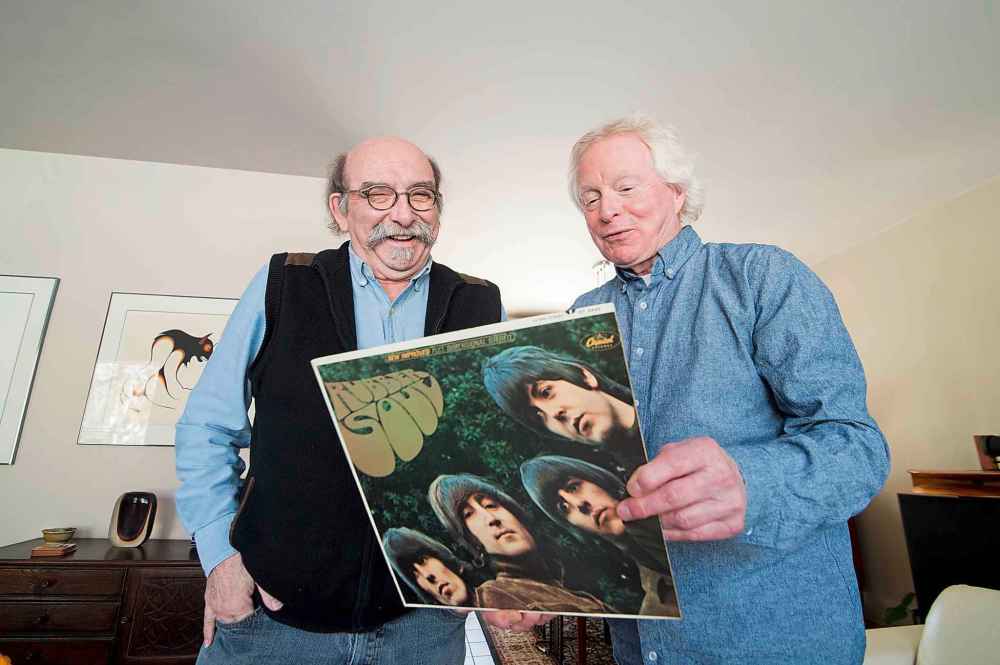
As for commercial value — Gillespie has been told members of Beatles fan clubs would give their eye-teeth for a dubbed copy — he simply shakes his head.
“Because of licensing agreements, it’s OK for a radio station to play the documentary which, in addition to interviews, obviously includes a ton of Beatles music. But for me to make a cent off it, I’d have to negotiate with all these different record companies, and who’s got the time or money for that?” he says.
“No, it’s just a project that’s deeply embedded in my soul and I’m overjoyed that thanks to CJNU, Beatles fans are finally going to get a chance to hear it again, after all these years.”
david.sanderson@freepress.mb.ca
Dave Sanderson was born in Regina but please, don’t hold that against him.
Our newsroom depends on a growing audience of readers to power our journalism. If you are not a paid reader, please consider becoming a subscriber.
Our newsroom depends on its audience of readers to power our journalism. Thank you for your support.
History
Updated on Thursday, February 27, 2020 8:29 PM CST: Typos fixed.

